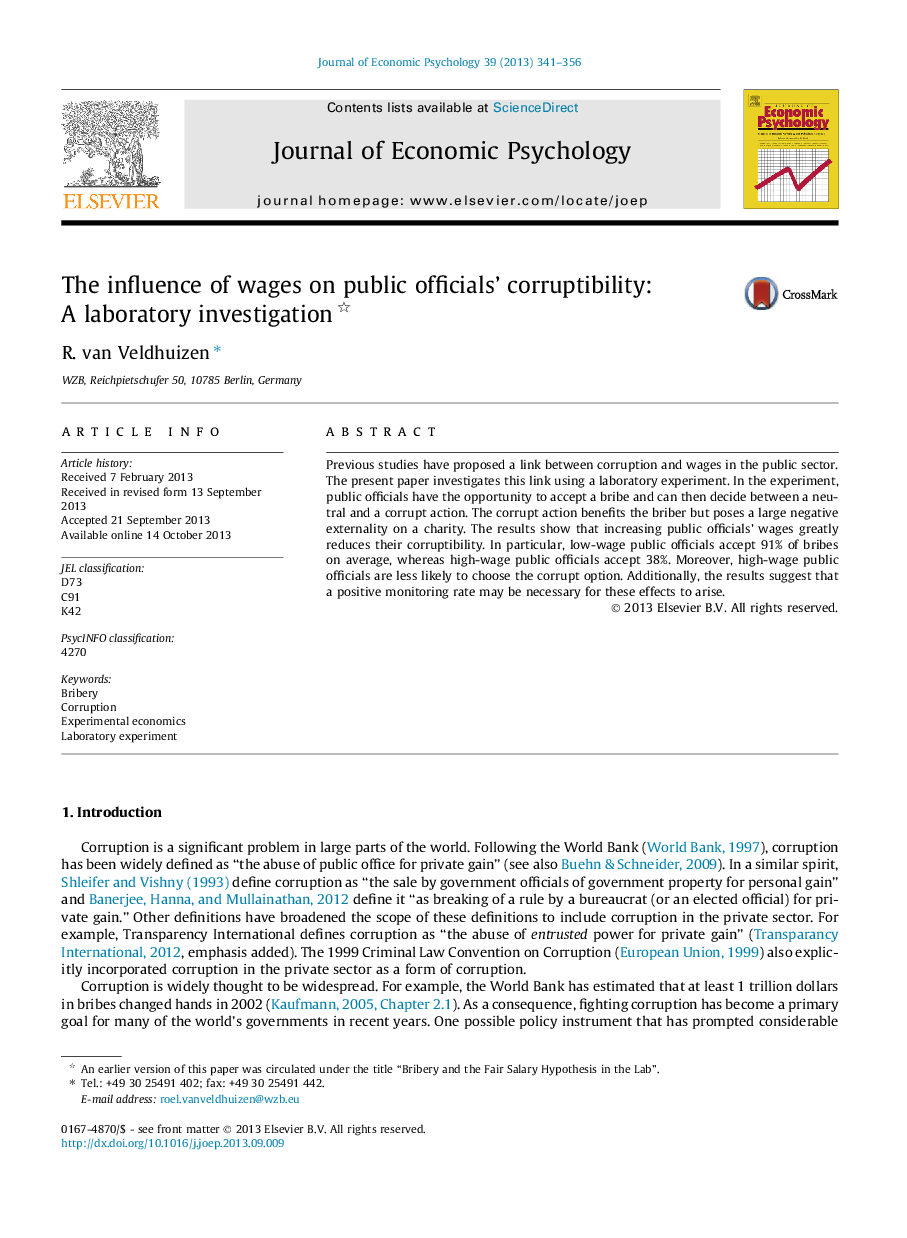| Article ID | Journal | Published Year | Pages | File Type |
|---|---|---|---|---|
| 7244982 | Journal of Economic Psychology | 2013 | 16 Pages |
Abstract
Previous studies have proposed a link between corruption and wages in the public sector. The present paper investigates this link using a laboratory experiment. In the experiment, public officials have the opportunity to accept a bribe and can then decide between a neutral and a corrupt action. The corrupt action benefits the briber but poses a large negative externality on a charity. The results show that increasing public officials' wages greatly reduces their corruptibility. In particular, low-wage public officials accept 91% of bribes on average, whereas high-wage public officials accept 38%. Moreover, high-wage public officials are less likely to choose the corrupt option. Additionally, the results suggest that a positive monitoring rate may be necessary for these effects to arise.
Related Topics
Social Sciences and Humanities
Business, Management and Accounting
Marketing
Authors
R. van Veldhuizen,
